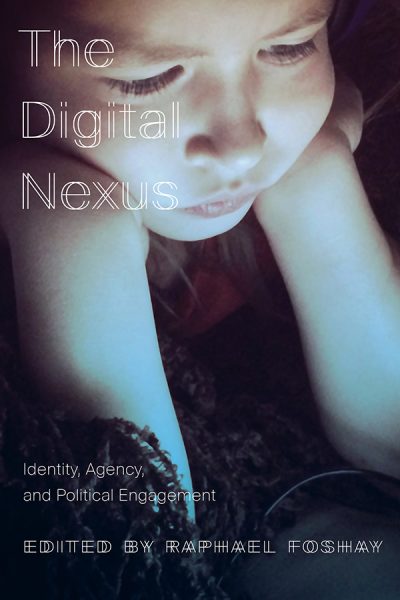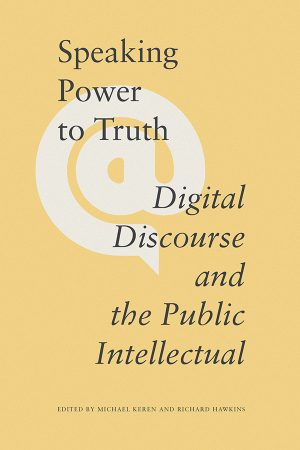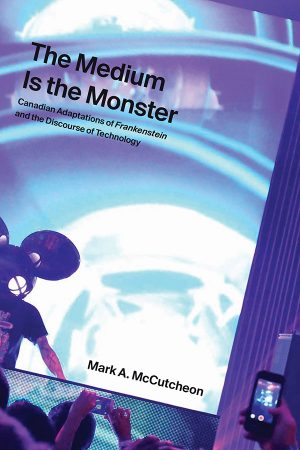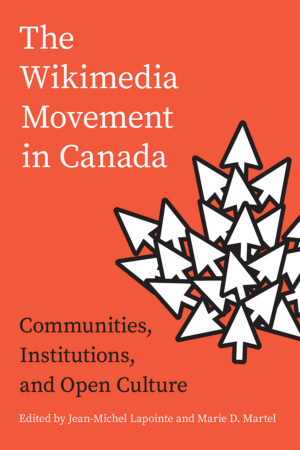Subjects: Communication Studies, Cultural Studies, Technology and Society
Series: Cultural Dialectics
Imprint: AU Press
- 9781771991292 (paperback)
- 9781771991308 (pdf)
- 9781771991315 (epub)
Over half a century ago, in The Gutenberg Galaxy (1962), Marshall McLuhan noted that the overlap of traditional print and new electronic media like radio and television produced widespread upheaval in personal and public life:
Even without collision, such co-existence of technologies and awareness brings trauma and tension to every living person. Our most ordinary and conventional attitudes seem suddenly twisted into gargoyles and grotesques. Familiar institutions and associations seem at times menacing and malignant. These multiple transformations, which are the normal consequence of introducing new media into any society whatever, need special study.
The trauma and tension in the daily lives of citizens as described here by McLuhan was only intensified by the arrival of digital media and the Web in the following decades. The rapidly evolving digital realm held a powerful promise for creative and constructive good—a promise so alluring that much of the inquiry into this new environment focused on its potential rather than its profound impact on every sphere of civic, commercial, and private life. The totalizing scope of the combined effects of computerization and the worldwide network are the subject of the essays in The Digital Nexus, a volume that responds to McLuhan’s request for a “special study” of the tsunami-like transformation of the communication landscape.
These critical excursions provide analysis of and insight into the way new media technologies change the workings of social engagement for personal expression, social interaction, and political engagement. The contributors investigate the terms and conditions under which our digital society is unfolding and provide compelling arguments for the need to develop an accurate grasp of the architecture of the Web and the challenges that ubiquitous connectivity undoubtedly delivers to both public and private life.
With contributions by Ian Angus, Maria Bakardjieva, Daryl Campbell, Sharone Daniel, Andrew Feenberg, Raphael Foshay, Carolyn Guertin, David J. Gunkel, Bob Hanke, Leslie Lindballe, Mark McCutcheon, Roman Onufrijchuk, Josipa G. Petrunić, Peter J. Smith, Lorna Stefanick, and Karen Wall.
Reviews
The Digital Nexus belongs to a new wave of scholarship inquiring into the many challenges and disruptions that networked communication imposes on public and private affairs. It looks at tech-driven transformation through the triple lenses of identity, agency (our ability to participate in society and take action) and political engagement—with a special focus on democratic processes and social action.[…]If we want technology that supports democracy, open dialogue and humanist values, then we will need to shape it accordingly. But there are other agendas at work and the struggle to determine the Internet’s future has only just begun. For this reason, we’ve never needed books like The Digital Nexus more.
Alberta Views
Table of Contents
- Acknowledgements
- Introduction: The Computational Turn and the Digital Network / Raphael Foshay
- PART I • DIGITAL THEORY
- 1. The Internet in Question / Andrew Feenberg
- 2. Emergent Meaning in the Information Age / Ian Angus
- 3. Responsible Machines: The Opportunities and Challenges of Artificial Autonomous Agents / David J. Gunkel
- 4. Open Source Transparency: The Making of an Altered Identity / Daryl Campbell
- PART II • DIGITAL CULTURE
- 5. Hacktivist (Pre)Occupations: Self-Surveillance, Participation, and Public Space / Carolyn Guertin
- 6. Institutions and Interpellations of the Dubject, the Doubled and Spaced Self / Mark A. McCutcheon
- 7. The Network University in Transition / Bob Hanke
- 8. Spinning the Web: Critical Discourse Analysis and Its Online Space / Leslie Lindballe
- 9. Paramortals, or Dancing with the Interactive Digital Dead / Roman Onufrijchuk
- PART III • DIGITAL POLITICS
- 10. The Rise of the National Surveillance State in Comparative Perspective / Peter J. Smith
- 11. Democracy and Identity in the Digital Age / Lorna Stefanick and Karen Wall
- 12. The Digital Democratic Deficit: Analysis of Digital Voting in a Canadian Party Leadership Race / Josipa G. Petrunić
- 13. Navigating the Mediapolis: Digital Media and Emerging Practices of Democratic Participation / Maria Bakardjieva
- 14. The Construction of Collective Action Frames in Facebook Groups / Sharone Daniel
- Afterword / Raphael Foshay
- Appendix: Do Machines Have Rights? Ethics in the Age of Artificial Intelligence / David J. Gunkel, Interviewed by Paul Kellogg
- List of Contributors
This work is licensed under a Creative Commons License (CC BY-NC-ND 4.0). It may be reproduced for non-commercial purposes, provided that the original author is credited.

![[book cover] Bomb Canada and Other Unkind Remarks in the American Media](https://www.aupress.ca/app/uploads/120159_Bomb-Canada-and-Other-Unkind-Remarks-in-the-American-Media-cover-291x450.jpg)


